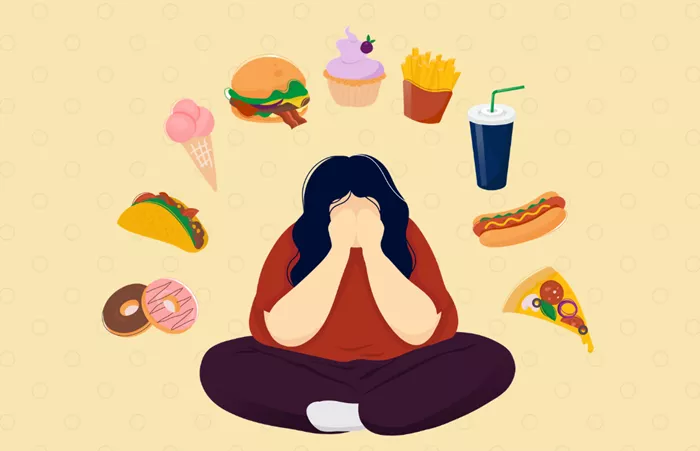Mental health plays a significant role in our overall well-being, and depression is one of the most common mental health challenges faced by people worldwide. While therapy and medication are essential treatments, what we eat also influences our mental state. Research shows that diet can impact brain chemistry, mood regulation, and cognitive function. This article explores the connection between diet and depression and highlights 12 foods that can help manage depression.
Understanding the Connection Between Diet and Depression
The foods we consume directly impact how our brain functions. Certain nutrients and food groups can help improve brain health, while others may worsen feelings of sadness, fatigue, and anxiety. For individuals struggling with depression, incorporating specific foods can boost serotonin levels, improve mood, and reduce the risk of depressive episodes. While a healthy diet isn’t a cure for depression, it can act as a support system to enhance mental health treatments.
12 Foods You Should Eat to Help Combat Depression
1. Fatty Fish
Fatty fish, such as salmon, mackerel, and sardines, are rich in omega-3 fatty acids. These healthy fats are essential for brain health and have been linked to improved mood regulation. Omega-3s help reduce inflammation in the brain, which is often a contributing factor to depression. Regular consumption of fatty fish may reduce depressive symptoms over time.
2. Leafy Greens
Spinach, kale, and other leafy greens are packed with folate, a B vitamin that has been shown to improve mood and reduce feelings of sadness. Low levels of folate have been linked to depression, so including these vegetables in your diet can have a positive effect on your mental health. They are also rich in antioxidants, which protect the brain from oxidative stress.
3. Nuts and Seeds
Almonds, walnuts, flaxseeds, and chia seeds are high in omega-3 fatty acids and magnesium, both of which contribute to better brain function and improved mood. Magnesium, in particular, helps regulate neurotransmitters that influence mood. A handful of nuts or seeds can be a quick, healthy snack for those dealing with depression.
4. Berries
Berries, such as blueberries, strawberries, and raspberries, are loaded with antioxidants and vitamin C. These nutrients help reduce inflammation and oxidative stress in the brain, which can improve overall mood. The antioxidants in berries also help protect brain cells from damage caused by stress and anxiety.
5. Whole Grains
Whole grains, like oats, quinoa, and brown rice, are rich in fiber and help regulate blood sugar levels. Stable blood sugar levels are crucial for maintaining a balanced mood. Whole grains also provide a steady supply of energy throughout the day, helping to combat feelings of fatigue and irritability often associated with depression.
6. Yogurt and Probiotics
The gut-brain connection is well-documented, and consuming foods that support gut health can benefit mental health. Yogurt, kimchi, sauerkraut, and other probiotic-rich foods can help maintain a healthy gut microbiome. A balanced microbiome is linked to improved mood, and a healthy gut may reduce symptoms of depression.
7. Avocados
Avocados are rich in healthy fats, including monounsaturated fat, which is beneficial for brain health. They also contain folate and potassium, two nutrients that help maintain proper brain function. The healthy fats in avocados support the production of neurotransmitters like serotonin, which play a key role in regulating mood.
8. Turmeric
Turmeric contains curcumin, a compound with powerful anti-inflammatory and antioxidant properties. Studies have shown that curcumin can increase levels of serotonin and dopamine, two neurotransmitters involved in mood regulation. Adding turmeric to your diet may help reduce depression symptoms and improve overall brain health.
9. Eggs
Eggs are an excellent source of protein, B vitamins, and essential amino acids, all of which contribute to better brain function. The high levels of vitamin D in eggs are especially important, as vitamin D deficiency is often linked to depression. Including eggs in your diet can help support mood regulation and cognitive function.
10. Dark Chocolate
Dark chocolate, particularly varieties with a high cocoa content, contains flavonoids, which are antioxidants known to improve brain function. Consuming small amounts of dark chocolate may help improve mood and reduce stress. The serotonin-boosting effects of chocolate make it a popular treat for those looking to lift their spirits.
11. Legumes
Legumes, such as lentils, chickpeas, and beans, are excellent sources of folate, iron, and protein. These nutrients support healthy brain function and help regulate mood. Legumes also have a low glycemic index, meaning they release energy slowly and can help stabilize blood sugar levels, preventing mood swings.
12. Green Tea
Green tea contains L-theanine, an amino acid that has been shown to promote relaxation and improve focus. Drinking green tea regularly may help reduce symptoms of anxiety and depression by increasing the production of dopamine and serotonin. It’s a soothing beverage that can have a calming effect on the mind.
Conclusion
Incorporating the right foods into your diet can significantly improve mental health and help alleviate the symptoms of depression. While these foods are not a replacement for medical treatment, they can act as supportive tools to manage depression. A well-balanced diet, along with therapy and medication, can help create a more holistic approach to managing mental health.
Related articles:
- Why Are Intelligent People More Prone To Depression?
- Is Being Over Emotional A Sign Of Depression?
- Is Numbness A Sign Of Depression?


